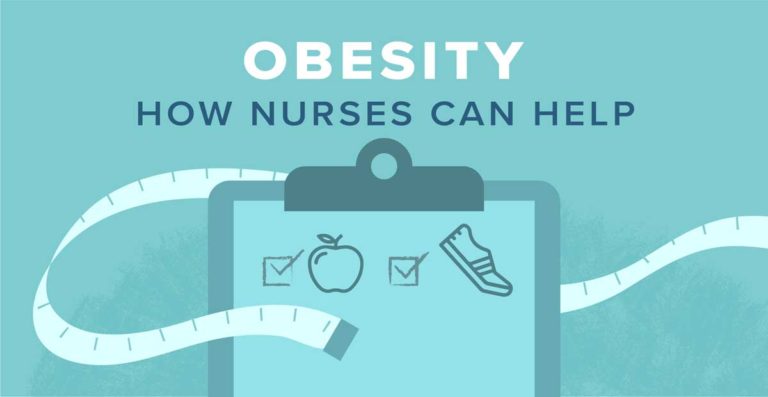Obesity is on the rise in the U.S., and it shows no sign of slowing down. According to the Center for Disease Control, 39.8% of adults living in the U.S. have been classified as obese in 2015 – 2016. That’s just over 93 million people, all with a Body Mass Index (BMI) of 30 or above. While nurses aren’t specifically responsible for the weight of their patients, they are healthcare providers and should do everything they can to improve the health of their patients.
How Does Obesity Affect a Person’s Health?
Obesity can be brought on by a range of factors, including leading an inactive lifestyle, certain medications that can boost appetite and promote fatigue, poor diet, a lack of education, an environment that promotes overeating, and living below the poverty line. If a person is obese, they will be at a greater risk for many serious diseases and conditions, compared to those with a healthy weight. Some of these conditions include:
- Death
- High blood pressure
- Type 2 diabetes
- Stroke
- Heart attack
- Heart disease
- Gallbladder disease
- Various forms of cancer
- Increased body pain
- Breathing problems when sleeping
- Excess body and joint pain
How Nurses Can Help?
A nurse can help their patients overcome obesity by talking about the many health complications associated with obesity as listed above. It’s important for patients to be aware of the risks that come with leading an unhealthy lifestyle. When it comes to combating obesity, every nurse should already be familiar with how patients can reduce their body weight, including eating less, eating healthier, and getting more exercise. But instead of simply reminding patients to watch what they eat, nurses can go one step further by coming up with practical ways for patients to be more active and make better decisions as they pertain to a person’s diet.
Incorporating More Physical Activity in the Patient’s Life
Many people will say that they don’t have enough time or energy to exercise but making time for physical activity doesn’t have to be a chore. Nurses can talk to their patients about their daily routine and look for small moments where the patient can be more active. This might include small steps towards leading a more active lifestyle such as watching TV while standing up or walking in place, using a resistance band around the house, or encouraging the patient to participate in local fitness groups.
Helping Patients Recognize and Accept the Will to Change
Pressuring a patient to lose weight often leads to disappointment and frustration as the patient fails to follow through. That’s why nurses can use a different approach that focuses on changing the patient’s mental state. If a person is resistant to change, they will not lose weight on their own. Nurses can remind patients of the benefits of leading a healthy lifestyle, including living a long life, spending more time with their loved ones, and enjoying some of their favorite activities, as a way of encouraging them to change their ways. They can direct them to support groups, weight loss programs, and other community resources that will connect them with people dealing with the same issues.
Giving Patients Access to Nutrition Information
Nurses might think that their patients understand the health benefits of eating an apple as opposed to eating a bag of chips, but some patients do not have a strong grasp of nutrition. Nurses can give their patients more information on nutrition, including how many calories a person should be eating, what kinds of food or nutrients a person should be eating throughout the day, and how to avoid unhealthy items. Nurses can also instill this information in parents with obese children to encourage healthy eating at a young age.
Nurses should feel empowered to help their patients overcome the challenges of obesity. While some patients may not want to change their lifestyle, nurses can be inspiring role-models for their patients, encouraging them to make healthy decisions at every turn.
